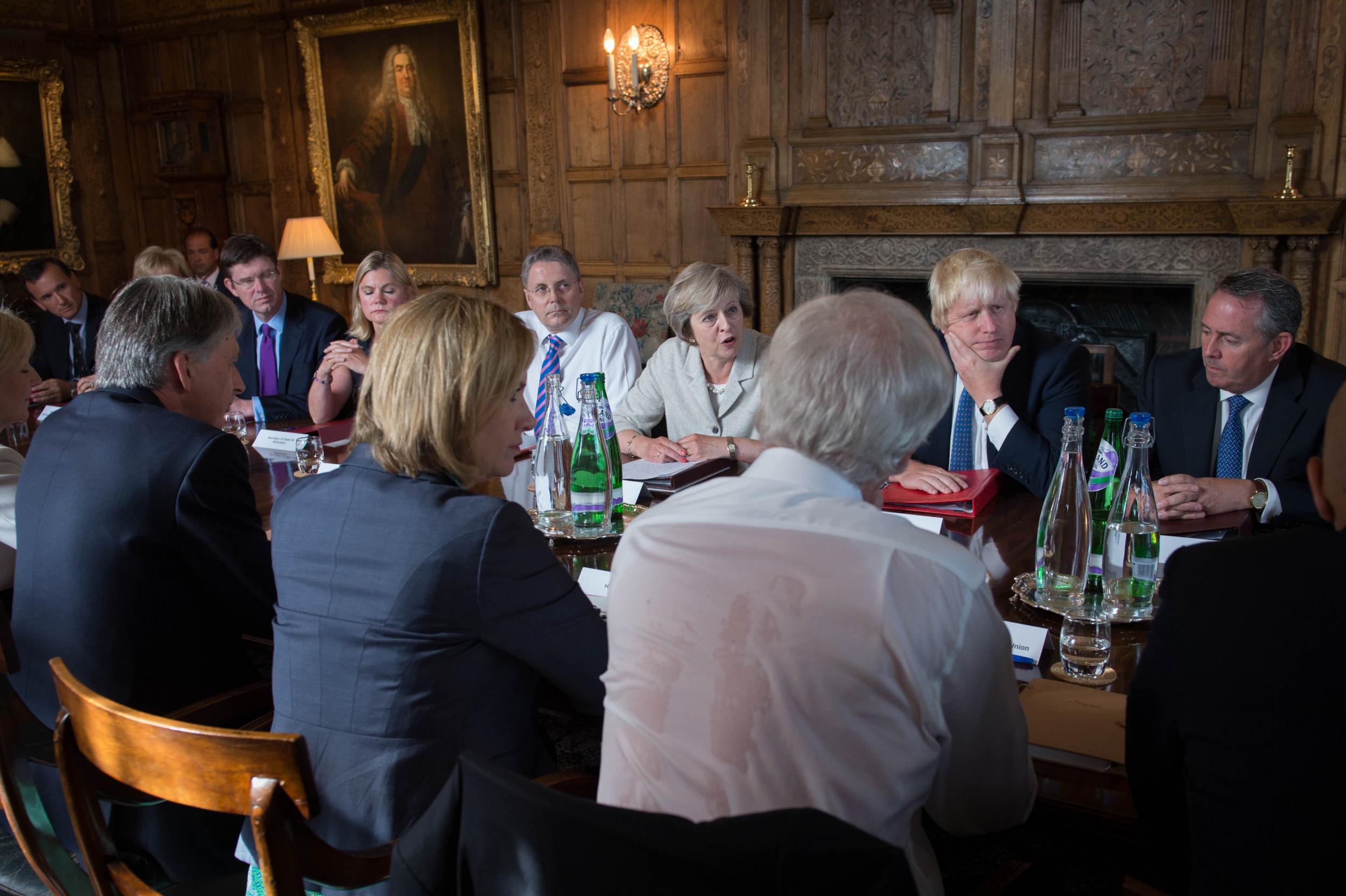Theresa May’s plan for a post-Brexit trade deal has been immediately written off by the EU as “pure illusion” less than 24 hours after she convinced her ministers to back it at a special lock-in session of Cabinet intended to sort out the UK’s trade stance once and for all.
Speaking after an informal summit of EU27 leaders in Brussels, European Council President Donald Tusk said Britain still did not understand that it could not ‘have its cake and eat it’, warning that the EU would push ahead with its own plans if the UK did not produce something substantial.
Mr Tusk told reporters it would “be much better” if the UK had an idea of what it wanted ahead of next month’s meeting, but that “we cannot stand by and wait”. The public slap down comes after ministers backed a vague promise of “ambitious managed divergence” at a lock-in away day at the PM’s country residence Chequers.
“Our intention is to adopt these guidelines whether the UK is ready with its vision of our future relations or not,” Mr Tusk told reporters.
“Naturally, it would be much better if it were, but we cannot stand by and wait. I hope to have some more clarity about the UK’s plans this week when I meet Prime Minister May in London.”
He added: “I am glad that the UK government seems to be moving towards a more detailed position, however if the media reports are correct I am afraid that the UK position today is based on pure illusion.
“It looks like the [have your] ‘cake’ [and eat it] philosophy is still alive. From the very start it has been a key principle of the EU27 that there can be no cherry picking and no single market à la carte. This will continue to be a key principle, I have no doubt.”
The Friday summit was convened with the main intention of hashing out the first stage of the next EU budget, and filling a financial hole left by Britain’s departure.
The European Commission wants cuts to spending on agricultural subsidies and cohesion funds – help for poorer member states – which make 70 per cent of the EU budget. Countries are also being asked to contribute more to make up the shortfall, while other revenue-raising measures such as a plastic tax have also been proposed.
The bloc also wants to increase spending on immigration and border control to tackle the migration crisis, a particular priority of the Austrian government, which will chair the EU council in the second half of this year.
Health Secretary Jeremy Hunt explained the position the UK Cabinet had come to on Brexit trade on BBC Radio 4 this morning. He said the UK wanted “frictionless trade” while also leaving the customs union.

He said there was a “central common understanding” that “there will be areas and sectors of industry where we agree to align our regulations with European regulations, such as the automotive industry”.
But he added: “But it will be on a voluntary basis. We will, as a sovereign power, have the right to choose to diverge, and what we won’t be doing is accepting changes in rules because the EU unilaterally chooses to make those changes.”
The proposal appears to be one that has already been ruled out by the European Union’s negotiators. Michel Barnier, the chief negotiator, has repeatedly said that trade barriers would have to be erected were the UK to leave the customs union and single market, and that Britain cannot “cherry pick” parts of the EU to remain in.
Documents released by the European Commission on the eve of the Chequers meeting reiterated that the plan Ms May was attempting to convince her ministers of crossed EU red lines and would not be acceptable.
The Prime Minister is currently trying to negotiate the transition period for Brexit, and wants to complete it before the March summit of the European Council, where she will meet other EU leaders. After that summit both sides hope to move to discussions about what framework trade will be conducted in, though a full trade agreement would only be negotiated after Britain leaves in March 2019.
Join our commenting forum
Join thought-provoking conversations, follow other Independent readers and see their replies
Comments